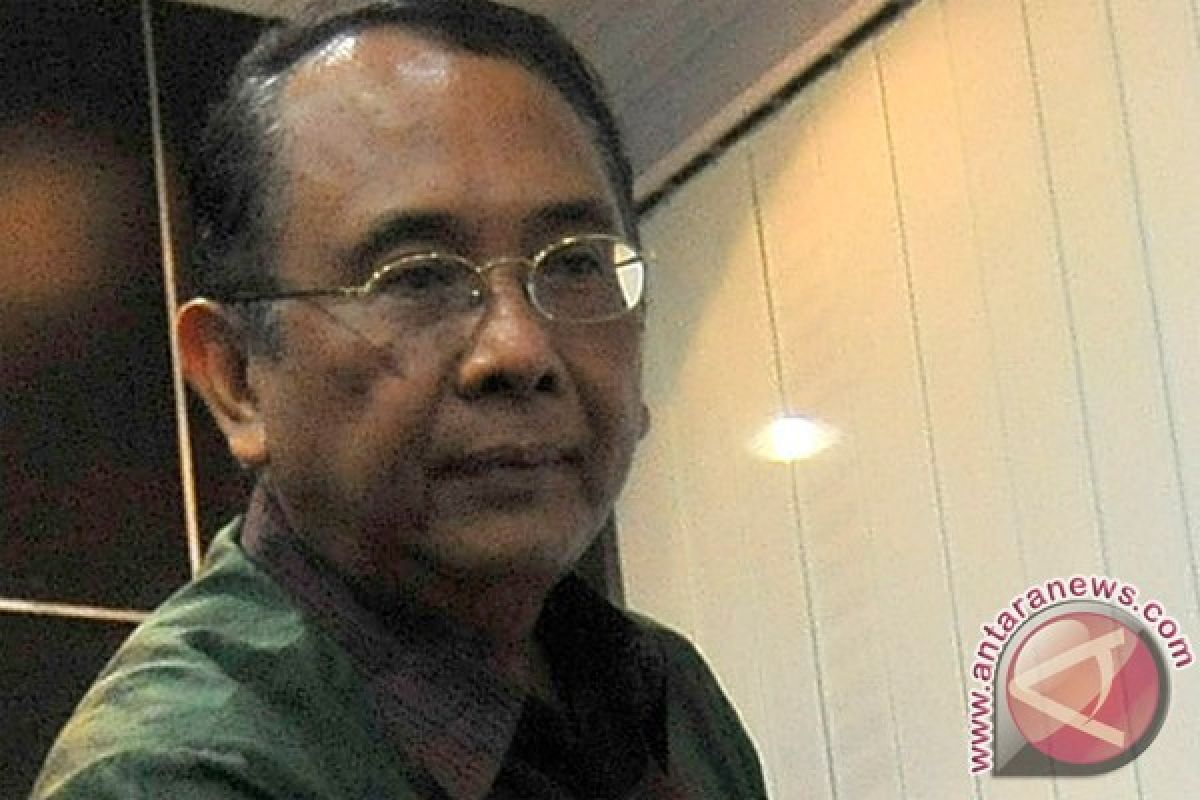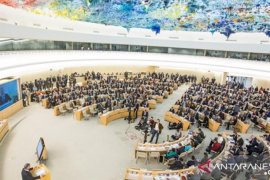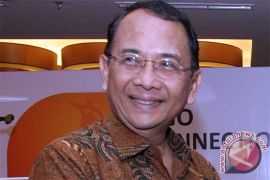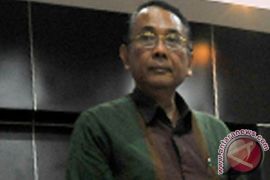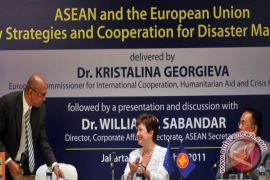I will work objectively and begin work without a unilateral attitude."Jakarta (ANTARA News) - Working on human rights issues is not new for Indonesian senior diplomat Dr Makarim Wibisono recently elected by UN Human Rights Council as special rapporteur on human rights in the Palestinian territories occupied by Israel since 1967.
Makarim Wibisono served as the president of the U.N. Human Rights Commission in its last year of operation in 2005. As the UN rapporteur general, he will assume his responsibility for a six-year term starting the first week of June 2014.
"I was elected to replace Richard Falk, a United States academic whose mandate ended on May 1," Makarim Wibisono said recently.
Falk, a Jewish, US legal expert, is considered controversial because he has advocated boycotting Israeli settlements, saying Israel has "genocidal" intentions toward the Palestinians.
The Jerusalem Post on May 8, 2014, wrote that the UN Human Rights Council (UNHRC) President Baudelaire Ndong Ella replaced Falk with the Indonesian diplomat after pressure from the Arab Group in Geneva.
Ndong Ella elected Makarim Wibisono, who moved ahead of Christine Chinkin, a professor in the London School of Economics. There were five nominees for the special rapporteur role before the council shortlisted them to two--Professor Christine Chinkin and Makarim Wibisono.
Ndong Ella said there had been irreconcilable differences regarding this position, and that Wibisonos appointment had eased that gridlock.
"I respected procedures by interviewing the candidates. I clarified that there were two that were not interviewed. I interviewed them. I chose the candidate who not only corresponded to the [UN] criteria, but also the person [who met] the expectations of the concerned parties in the system," UNHRC chief said.
As a UN special rapporteur, Makarim Wibisono will observe and monitor violation of civil, economic and cultural rights in Israeli-occupied Palestinian territories.
"As a representative of the Republic of Indonesia, I am entrusted with political tasks to handle sensitive issues," he said.
In the past, UN special rapporteurs had difficulties in performing their duties in the Gaza Strip and the West Bank, he added.
Wibisono, who has been known as an objective UNHRC leader, expressed hope that he would have wide access to the Israeli-occupied Palestinian territories so that he can prepare objective reports.
"I will work objectively and begin work without a unilateral attitude," he said.
The UNHRC has 37 rapporteurs, of which 15 are for specific countries. However, Israel is the only country to which a rapporteur is permanently assigned. Its mandate focuses solely on Israeli actions in the occupied Palestinian territories.
"I met and interacted with Ambassador Wibisono in 2005 when he was Chairman of the former UN Commission on Human Rights, a position that he fulfilled with fairness and professionalism," UN Watch executive director Hillel Neuer said in a statement published on the UN Watch blog.
"Despite the bias inherent in this one-sided UN mandate, which only examines Israel and presumes guilt in advance, I hope that Ambassador Wibisono will turn a new page for the UN position," Neuer said, expressing his concern about Wibisonos pro-Palestine statements that he had made on behalf of the Indonesian government in the past.
The Indonesian government is committed to supporting the Palestinian struggle for independence, and says it would only establish diplomatic ties with Israel if Israel ends the occupation and Palestine becomes a sovereign and independent country.
Palestinian Ambassador to Indonesia Fariz Mehdawi congratulated Makarim Wibisono on his appointment as new UN special rapporteur.
He considered the senior Indonesian diplomat as a professional and an expert on human rights issues. Therefore, Mehdawi believed that Wibisono will be able to carry out his task objectively and professionally.
Israel is always not happy with any special rapporteur, who reports about human rights issues in the Palestinian territories occupied by the Zionist regime, according to him.
Everyday, human rights are violated by Israel in the occupied territories, and those crimes should not be left unreported, the Palestinian ambassador said.
Makarim Wibisono was the Permanent Representative of the Republic of Indonesia to the United Nations office in Geneva.
Educated at Gajah Mada University, Yogyakarta, John Hopkins University, Washington D.C., where he obtained an M.A. in Advanced International Studies, and Ohio State University, Columbus, where he completed his Ph.D. in Political Economy, Ambassador Wibisono began his diplomatic career in Jakarta, in 1972, as chief of the US desk, Directorate of American Affairs.
He was then appointed as Deputy Permanent Representative of Indonesia, then Ambassador Extraordinary and Plenipotentiary of Indonesia to the United Nations from 1997-2001.
Previously, he also occupied the posts of Director-General for Foreign Economic Relations (2000-2002) and Director-General for Asia Pacific and Africa (2002-2004) at the Ministry of Foreign Affairs before his present appointment as Permanent Representative of Indonesia to the United Nations in Geneva.
Alongside these responsibilities, Ambassador Wibisono was appointed in 1999 as Vice President of the Economic and Social Council of the United Nations (ECOSOC), a year in which he also served as Chairman of the ECOSOC Ad Hoc Advisory Group on Haiti.
In 2000, Ambassador Wibisono also began a three-year stint as Chairman of the Working Group of the Non-Aligned Countries on Disarmament.
He had held the post of Chairman of the APEC Counter-Terrorism Task Force. He had also been a member of the United Nations Information and Communication Technology Task Force (UN-ICT) and of the Advisory Board to Secretary General of the United Nations for UN-ICT since 2001. His last post before being appointed as UNs special rapporteur was the executive director of the Jakarta-based ASEAN Foundation.
(T.F001/INE/KR-BSR/H-YH)
Reporter: Fardah
Editor: Priyambodo RH
Copyright © ANTARA 2014
